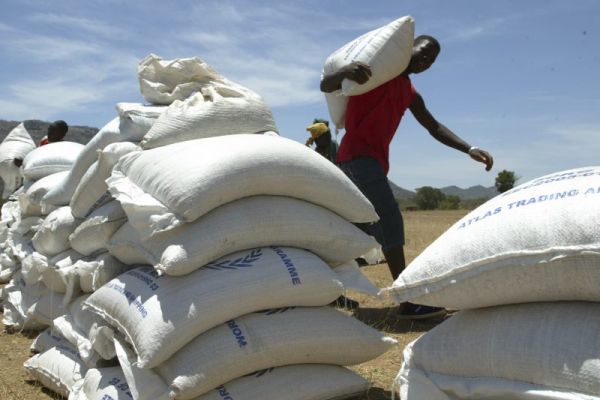The Patriotic Front (TPF) opposition party has voiced concerns about delays in distributing food aid in rural areas, citing transportation issues hindering the timely delivery of maize to those in need.
The party has called on the government to investigate the situation thoroughly to ensure food reaches vulnerable communities without delay, especially since current policies prohibit individuals from pooling resources to cover transportation costs.
TPF Secretary for Information and Publicity, Admire Dube, stated that the party had received reports of hunger in various regions, with the situation worsened by delays in payments to transporters.
Dube explained that while food is available at depots, many communities cannot access it due to logistical challenges.
“We have received reports of hunger in areas like Halale in Matobo, Matabeleland South, and Hurungwe in Mashonaland West. This seems to be a widespread problem,” Dube said, urging swift action to address the hunger crisis in rural areas.
“The delays are due to transporters not being paid. Some are still waiting for payments for previous jobs, and in some instances, they have only received partial payments. Meanwhile, people are suffering while food remains at the depots.”
Dube also expressed concern over reports that some transporters have been charging community members US$1 per person for food delivery, which is against government regulations.
“The government does not permit collecting money from communities for transportation. As a result, people are suffering while food is available but inaccessible. We urge the government to ensure the distribution system functions correctly so that aid reaches those in need without these delays or additional charges.”
Dube noted that local government representatives and authorities should act swiftly when they observe communities struggling to receive food aid.
“Information needs to reach the relevant authorities quickly because people are desperate. While the policy prohibits the pooling of resources for transportation, desperate individuals may still resort to paying, which can lead to unintended consequences,” he added.
Earlier this month, Minister of Justice, Legal and Parliamentary Affairs, Ziyambi Ziyambi, acknowledged that the food distribution process had encountered challenges but assured the public that improvements were underway.
“Indeed, achieving 100 percent efficiency at the start of the distribution process is difficult, but progress has been made since the programme began,” Ziyambi said in Parliament.
The minister stressed that allowing people to arrange their transport could create opportunities for corruption.
“If there are specific challenges in certain areas, we urge communities to communicate with the authorities so we can address these issues. Rural communities must not be taken advantage of, and we must ensure that food reaches them fairly and efficiently,” Ziyambi said.

